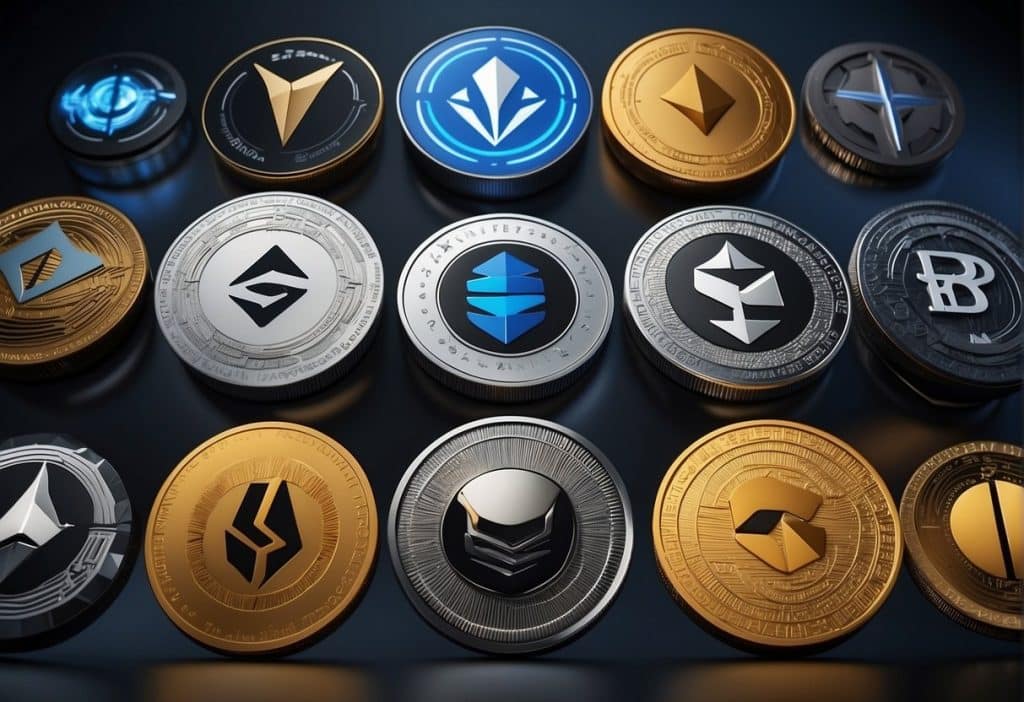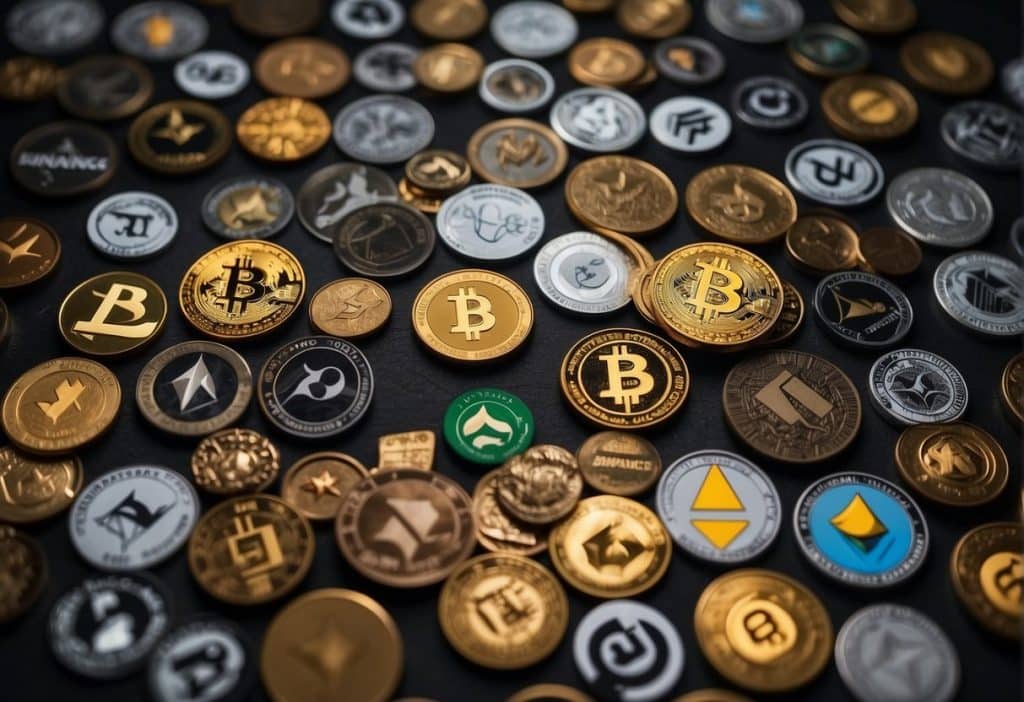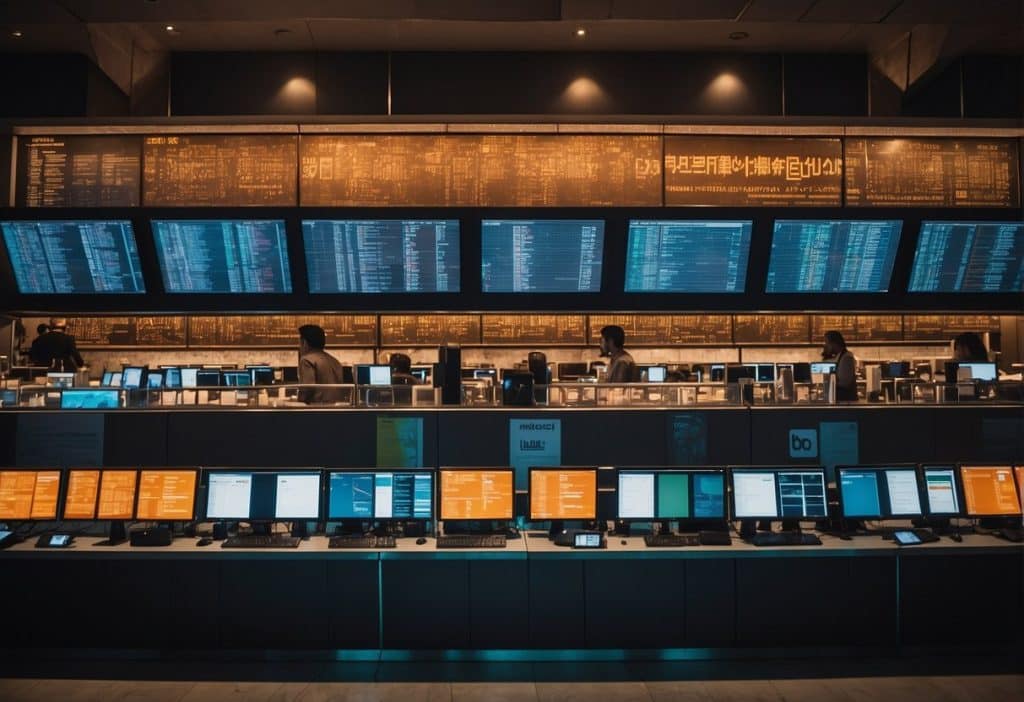As the landscape of cryptocurrency exchanges evolves, many traders and investors are seeking alternatives to Binance. While Binance remains one of the largest and most popular platforms, there are various reasons you might consider a different option, such as specific regulatory requirements, the need for more privacy, specialized trading features, or additional digital assets offerings. If you’re looking to diversify your exchange options or simply want a change, exploring other platforms can provide you additional benefits and tailor to your trading needs.

With several exchanges now available, it’s important to weigh the different features and benefits that each provides. These can range from enhanced security measures to more user-friendly interfaces for beginners, or platforms with lower fees and better customer support. Safety and adherence to regulations are becoming increasingly important, and some exchanges have made significant strides in these areas, aiming to provide you with peace of mind alongside their trading services.
Key Takeaways
- Exploring exchanges beyond Binance can provide tailored features and additional digital asset offerings.
- Evaluating platform security, regulatory compliance, and fee structures is crucial when selecting an alternative.
- The needs of beginner and experienced traders can be met by different exchanges offering varied user experiences.
Understanding Binance Alternatives
When considering Binance alternatives, it’s essential to focus on factors such as security, fees, and user experience, which significantly influence your trading activities.
What Makes a Good Alternative?
A good Binance alternative should offer you a balance of security, low trading fees, and a user-friendly experience. Here are key points that make an exchange a strong alternative:
- Security: Look for exchanges that implement strong security measures, such as 2-factor authentication (2FA), cold storage for customer funds, and compliance with regulatory standards.
- Fees: Compare the trading fees, as they can impact your overall profitability. Some alternatives may offer lower fees or different structures, such as maker-taker models, which can be beneficial depending on your trading volume.
- Features: Seek out platforms that provide additional features like advanced trading tools, a wide range of cryptocurrencies, and perhaps even educational resources.
- Customer Service: Good customer service is crucial. Ensure the exchange has a reputation for responsive support.
- Liquidity: High liquidity facilitates easier trade execution without significant price impacts.
Centralized vs Decentralized Exchanges
Centralized Exchanges (CEX):
- Pros:
- Typically offer better liquidity.
- Usually provide superior customer service.
- More often regulated, providing a certain level of consumer protection.
- Cons:
- Prone to security risks if not managed properly.
- Your funds are held by a third party, which might be a concern for some users.
Decentralized Exchanges (DEX):
- Pros:
- You maintain control of your private keys, increasing security.
- Often lower fees compared to CEXs.
- Not typically subject to the same level of regulation, which can lead to a wider variety of offered cryptocurrencies.
- Cons:
- Generally have less liquidity.
- Tend to have a steeper learning curve.
- Customer support options may be limited.
When deciding on an exchange, consider your personal preference for centralized control versus the autonomy provided by decentralized platforms. Both types of exchanges have their own sets of trade-offs involving regulation, security, and liquidity. Choose the one that aligns with your trading habits and security preferences.
Top Binance Alternatives

If you’re looking for platforms that rival Binance in terms of usability, security, and features, you’ve come to the right place. Below, you’ll find details on several top alternatives that stand out each for their unique offerings and strengths.
Coinbase – The Next Best Thing
Coinbase provides an accessible platform for you, especially if you’re a beginner in the crypto space. With tools such as Coinbase Wallet and Coinbase Card, along with ACH payment options, the exchange offers a simplified experience. Coinbase Pro further extends into spot and futures trading with more advanced features.
Kraken – For Advanced Security and Features
Kraken prioritizes your security and regulatory compliance, offering a robust platform with a wide selection of digital assets. Renowned particularly in Europe and the United States, Kraken enables you to engage in both spot and futures trading while dealing with various fiat currencies.
KuCoin – The Altcoin Haven
At KuCoin, you can explore an expansive range of altcoins with relatively low fees. The platform is known for not mandating KYC for basic account functions, and it also features its own token, KuCoin Shares (KCS), which can be appealing if you’re interested in additional benefits such as reduced trading fees.
Gemini – A Strong Contender for US Traders
Gemini is a regulated exchange based in New York, making it a reliable choice for you if you’re in the United States. It captivates beginners with user-friendly interfaces and offers opportunities for passive income through various means, including its venture into the NFT market.
Uphold – Seamless Crypto and Fiat Operations
With a firm commitment to transparency, Uphold is a versatile exchange where you can effortlessly manage both crypto and traditional fiat currencies. It’s a solid choice if you’re interested in a straightforward platform for moving between different digital assets without complication.
Comparative Analysis of Alternatives

When looking for a Binance alternative, it’s crucial that you consider fee structures, security measures, regulatory compliance, the range of trading features offered, and the overall user experience. The exchanges listed here have been chosen for their prominence and relevance in the crypto trading community.
Fee Structure Comparison
The cost of trading can significantly impact your investment returns. Here’s a breakdown of different fee structures:
- Centralized exchanges (CEX) like Coinbase typically charge a percentage of the transaction value as a trading fee. For example, Coinbase’s fee is around 0.50% for standard buy/sell transactions.
- Kraken offers a tiered fee schedule ranging from 0.16% to 0.26% for spot trading that becomes more competitive as your volume increases.
Withdrawal and transaction fees vary by exchange and should be assessed based on your expected usage.
Security and Compliance Across Exchanges
When discussing security, keep in mind features like 2FA (two-factor authentication), insurance funds, and cold storage of assets:
- Coinbase is known for robust security measures and compliance with KYC and regulators, making it a trustworthy choice for many.
- Kraken’s security protocols also rank highly, with comprehensive measures against physical and cyber threats.
Each platform’s regulatory standing varies, with some like Binance.us tailored to meet U.S. regulatory frameworks.
Features and Trading Options
The availability of various features can enhance your trading experience:
- Coinbase and Kraken both support staking, enabling you to earn rewards on your cryptocurrency holdings.
- For derivatives trading, platforms like Bybit and Kraken might offer the leverage and margin options you’re interested in.
Fiat currency support improves accessibility for converting between cryptocurrencies and traditional currencies.
Platform User Experience
The ease with which you navigate and use an exchange’s interface can affect your trading success.
- Coinbase is praised for its user-friendly mobile apps, ideal for those preferring to trade or manage their portfolio on the go.
- Kraken’s platform strikes a balance between advanced features for experienced traders and straightforward options for newer users.
Good customer service and API support are additional factors that might inform your choice of exchange.
Alternative Platforms for Specific Needs

When considering alternative cryptocurrency exchanges to Binance, your choice may depend on specific trading priorities such as finding lower fees for smaller trades, accessing a wide variety of altcoins, utilizing leverage for margin trading, or seeking opportunities for staking to earn passive income.
Best for Low Fees and Small Trades
If you’re looking to make small trades without incurring high fees, KuCoin stands out. They offer one of the lowest trading fee structures, with a maker and taker fee starting at 0.1% without any hidden costs. Withdrawal fees are also competitive, which is crucial for traders dealing with small trades to keep costs minimal.
Best for Altcoin Variety
For traders seeking a vast range of altcoins, Coinbase Pro is an appealing option. They support a wide spectrum of cryptocurrencies, providing you with the opportunity to trade in numerous altcoin markets. This variety can be particularly beneficial for investors looking to diversify their portfolio beyond the most common digital assets.
Best for Margin and Leverage Trading
If margin and leverage trading are what you seek, Bybit offers a robust platform with competitive leverage options. They provide a maximum leverage of up to 100x on certain contracts. Bybit’s user-friendly interface caters to both beginners and seasoned traders, ensuring a comprehensive trading experience.
Best for Staking and Passive Income
For those interested in staking and earning passive income, Kraken is noteworthy. This exchange offers a variety of staking options, allowing you to earn rewards on your cryptocurrency holdings. The staking process with Kraken is typically straightforward, making it a suitable platform for investors looking to earn extra income through their crypto assets.
Additional Services and Integrations
When considering alternatives to Binance, you’ll find that additional services and integrations play a significant role in the platforms’ value propositions. These offerings range from wallet services and security measures to payment options and exchange-specific features.
Wallet Services and Cold Storage
Your crypto assets require secure storage, and exchanges like Coinbase provide renowned Coinbase Wallet services, offering both hot and cold storage options. Cold storage is particularly vital for long-term security, safeguarding your digital assets offline, away from potential online threats. Kraken is another platform known for its robust security measures, implementing stringent safety precautions and technology to protect users’ investments.
Payment Integrations and Withdrawal Methods
Flexibility in payment and withdrawal methods can greatly enhance your trading experience. Exchanges have integrated with payment services like PayPal and Apple Pay for convenient funding. Additionally, methods such as SWIFT, wire transfers, SEPA, and simple bank transfers are commonly available. When opting for alternatives to Binance, ensure that the platform supports a variety of payment options for both deposits and withdrawals.
Exchange Ecosystems and Extra Features
Beyond basic trading, some exchanges offer expanded ecosystems and features. For example, the Binance Smart Chain is an attraction for many, but alternatives like Coinbase Pro offer advanced trading options and a variety of crypto assets. Platforms extend their capabilities with features such as crypto mining, offering additional ways to engage with digital assets and expand your portfolio.
Customer Support and Resource Availability
Effective customer support and a wealth of resources are crucial for a positive trading experience. Look for platforms that offer transparent and responsive customer service channels. Ensure that there’s an adequate verification process in place to maintain security and trust. Exchanges like Kraken prioritize your support needs, offering extensive resources and assistance to guide you through the trading process.
Safety and Regulatory Considerations

When considering alternatives to Binance, it is crucial to evaluate both the regulatory stance and the security measures of the platform. Your choice should balance robust safety features with strict adherence to regulatory norms to ensure both compliance and the safeguarding of your digital assets.
Understanding Exchange Compliance
Regulation of cryptocurrency exchanges varies widely across jurisdictions. Centralized exchanges in the United States, for instance, must follow strict KYC (Know Your Customer) and AML (Anti-Money Laundering) guidelines, whereas decentralized exchanges might offer more privacy but lack those regulatory safeties.
- United States: Exchanges operating here must comply with FinCEN and SEC regulations and often require comprehensive KYC procedures.
- United Kingdom: The FCA regulates crypto exchanges under specific guidelines geared toward anti-money laundering and combating the financing of terrorism.
- Japan: FSA provides a well-defined regulatory framework for exchanges, ensuring a high level of compliance and consumer protection.
- Malta: Known as the “Blockchain Island,” it offers a progressive framework for crypto businesses under the Malta Digital Innovation Authority.
However, decentralized platforms may offer fewer regulatory protections, which can pose additional risks.
Protecting Your Digital Assets
The security of your investments is paramount. Look for platforms that utilize industry-standard protections such as cold storage for the majority of funds, offering a barrier against online threats.
- Cold Storage: Ensure the exchange stores a significant amount of assets offline, away from potential online hacks.
- Transparency: Seek platforms that provide clear information about their security protocols.
- Regulated: A platform that is regulated by a reputable body is more likely to follow stringent cybersecurity measures to protect against the loss of assets.
Keep in mind that regulatory compliance and security don’t just protect the platform, but they also safeguard your interests as a user, providing a shield against fraud and other illegal activities.
Emerging Trends in Cryptocurrency Exchanges

The landscape of cryptocurrency exchanges is rapidly evolving, propelled by technological advancements and a shift in user preferences. Here, you’ll explore the latest trends that are shaping the future of digital asset trading platforms.
Decentralized Finance (DeFi) and DEX Integration
Decentralized exchanges (DEXs) are at the forefront of the DeFi movement, offering you the ability to trade without the need for a centralized authority. Innovation in this space is constant, with new technologies improving transaction speeds and security. DEXs are increasingly integrating with DeFi platforms to provide a broader range of financial services, such as lending, borrowing, and yield farming. This integration allows for a more comprehensive financial ecosystem where you can manage all aspects of your digital assets.
The Growth of NFT and Tokenization
NFTs (non-fungible tokens) are transforming the way you think about ownership and value in the digital realm. They allow for the tokenization of unique assets, making it possible to buy, sell, and trade them on cryptocurrency exchanges. The tokenization trend is not limited to art or collectibles; it’s expanding into real estate, intellectual property, and more, bringing a new level of liquidity to a variety of markets.
Adoption of Cryptocurrencies in Mainstream Finance
Mainstream finance’s adoption of cryptocurrencies is a sign of the maturing market. You will notice more legacy financial institutions integrating cryptocurrencies into their offerings, enabling you to interact with digital assets through familiar platforms. Spot and derivative trading of cryptocurrencies alongside fiat currencies is becoming commonplace, enhancing liquidity and accessibility for a wide range of users. This adoption indicates a significant shift toward a future where digital and traditional finance coexist.
Frequently Asked Questions
In this section, you’ll find direct answers to common inquiries regarding alternatives to Binance for various cryptocurrency-related services.
What are the top cryptocurrency exchanges in Europe for trading?
For cryptocurrency trading in Europe, exchanges such as Coinbase, Kraken, and Bitstamp are widely used due to their compliance with EU regulations, availability of diverse trading pairs, and robust security measures.
Which platform offers the best P2P crypto trading experience as an alternative to Binance?
LocalBitcoins and Paxful are among the top platforms that offer peer-to-peer (P2P) trading experiences. They provide a range of payment options and an escrow service to facilitate a secure trading environment.
What are the most recommended websites for cryptocurrency analysis?
Websites like CoinMarketCap, CoinGecko, and CryptoCompare are highly recommended for their comprehensive analysis tools, real-time data, and detailed market insights across various cryptocurrencies.
What are some strong contenders to Binance Futures for derivative trading?
Competitors to Binance Futures include platforms like BitMEX, Deribit, and Bybit. These exchanges offer a range of derivative products, including futures and options, with competitive fees and advanced trading features.
Which exchange is considered a better option than Binance for security and wallet services?
Coinbase is often considered a better option than Binance for security and wallet services, boasting a strong track record of security, insurance policies, and user-friendly wallet applications.
How does Coinbase compare to Binance in terms of user experience and features?
Coinbase is known for its simple and intuitive interface, making it suitable for beginners, while Binance offers a more complex platform with advanced charting features and a wider variety of tokens, appealing to experienced traders.
